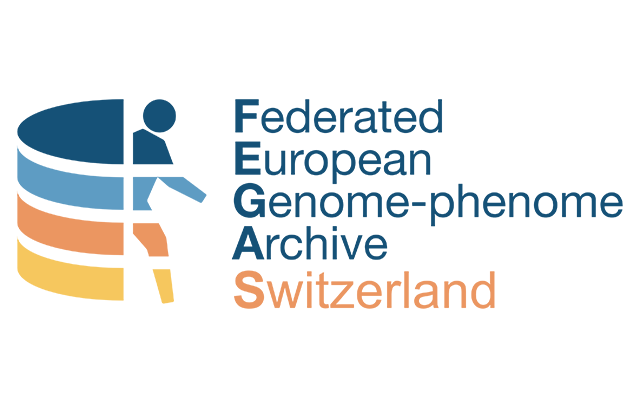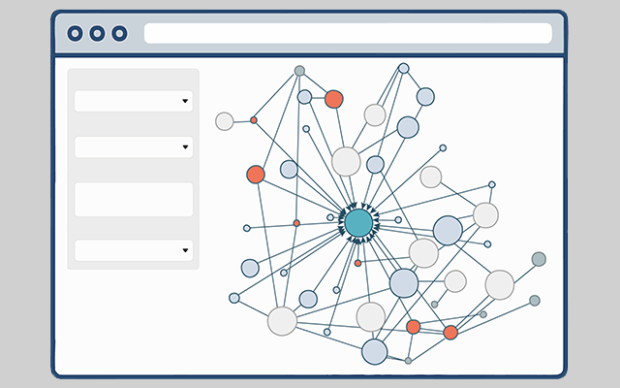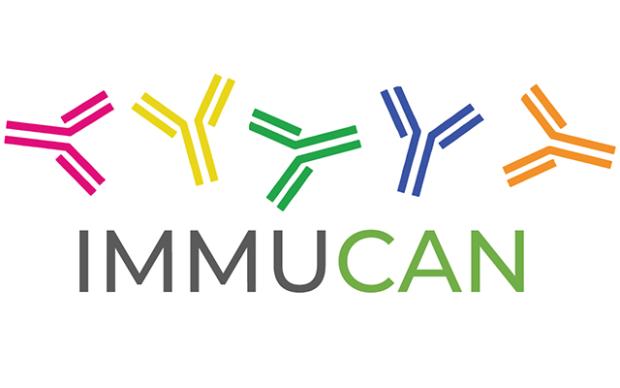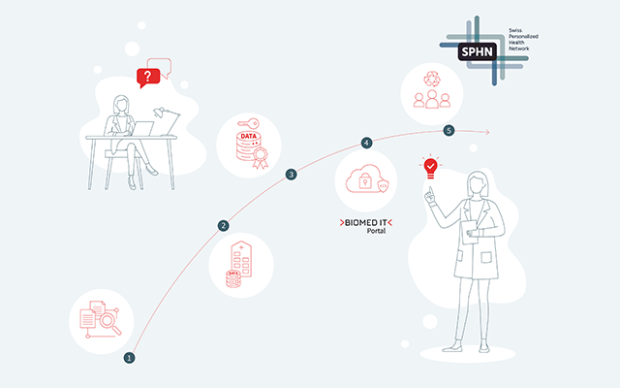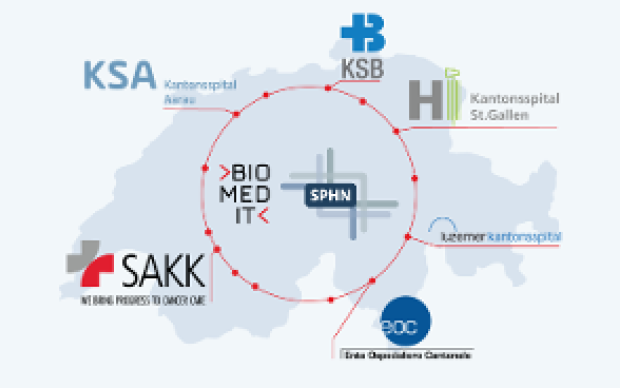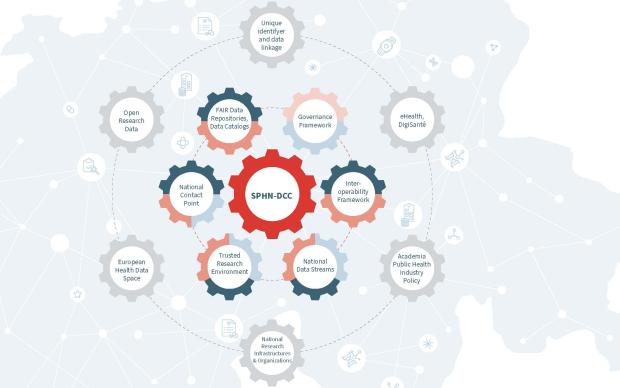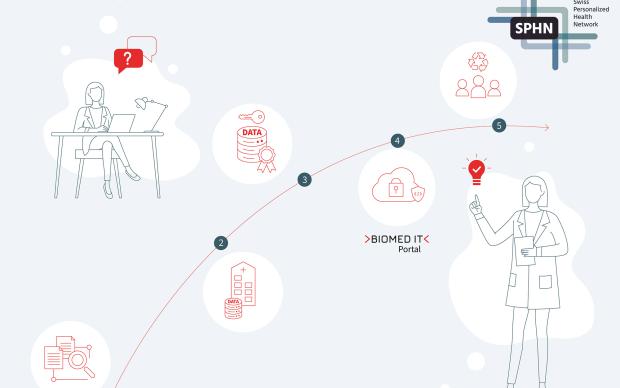Following the successful demonstration of secure infrastructure for storing and sharing sensitive patient data, Switzerland has now officially joined the Federated European Genome-phenome Archive (FEGA) – a growing international community that provides federated access to genomics resources for research. A consortium of six institutions coordinated by SIB, the Swiss FEGA node will further our understanding of health and disease, accelerate personalized therapies, and support the delivery of large-scale genomics and health data initiatives in Switzerland and beyond.
Patient omics data are a key resource for investigating health and disease. Accessing these data is challenging however: they cannot be made openly available or transferred across national borders; individual researchers often delegate the expertise and infrastructure for storing and providing secure access to the sensitive data they produce; and researchers in other groups cannot easily find which non-public data exist where.
FEGA overcomes these issues through a network of national nodes for secure, legally compliant data storage and access, that are connected to a central node (Central EGA) for global data discovery. In addition to Switzerland, FEGA includes nodes from Canada, Finland, Germany, Norway, Poland, Portugal, Spain, and Sweden – with many more worldwide in the process of joining.
A global resource for disease research and personalized medicine
FEGA was launched in 2022 to overcome a major roadblock for biomedical research: the ability of scientists to find and share DNA sequences (genomics), gene expression analyses (transcriptomics), and other ‘omics’ data from patients. Switzerland has now joined this growing international network, which currently includes countries in Europe and North America.
Patient omics data are a key resource for investigating health and disease. Accessing these data is challenging however: they cannot be made openly available or transferred across national borders; individual researchers often delegate the expertise and infrastructure for storing and providing secure access to the sensitive data they produce; and researchers in other groups cannot easily find which non-public data exist where.
FEGA overcomes these issues through a network of national nodes for secure, legally compliant data storage and access, that are connected to a central node (Central EGA) for global data discovery. In addition to Switzerland, FEGA includes nodes from Canada, Finland, Germany, Norway, Poland, Portugal, Spain, and Sweden – with many more worldwide in the process of joining.
The infrastructure will, for the first time, allow researchers in Switzerland to deposit human genomics data in a secure national archive that complies with Swiss regulations for data protection and human research – and control access to these data for approved studies around the world. This will aid the discovery of disease mechanisms and development of personalized medicine, by increasing the volume and diversity of genomics data available for research.
Swiss FEGA plans to be open for data submission by the end of the year. The node is led by SIB and supported by the Swiss Personalized Health Network (SPHN), with ETH Zürich - Scientific IT Services (ETH-SIS), ETH Zürich - NEXUS Personalized Health Technologies (NEXUS), Health 2030 Genome Center (H2030GC), Swiss Data Science Center (SDSC), and Switch as key partners. The work contributes to our strategic objectives to unlock omics data for better health, remain at the leading edge of new technological developments, and represent Swiss interests internationally in life science research infrastructure.
Delivering the first Swiss archive for human genomics data
Swiss FEGA was invited to join the global network following a successful demonstration of its end-to-end functionality:
secure data submission and data storage, along with standardized descriptions of each dataset (metadata);
data discovery through automated uploading of non-sensitive metadata in the Central EGA node, which allows researchers to search in one place for datasets relevant to a planned study;
controlled data access through a system for authorizing data access requests, data protection agreements, and temporary access to approved research projects.
SIB coordinated the development of this infrastructure and developed the legal framework to ensure Swiss FEGA complies with national regulations. All Swiss FEGA data will be securely archived on Switch cloud infrastructure, with SIB as service owner and providing the user portal for data submissions and requests. ETH-SIS manages the secure data archiving service, SDSC provides the data governance platform, and H2030 GC and SDSC are responsible for user engagement and testing.
Controlled data access is enabled via Switzerland’s Trusted Research Environment, BioMedIT, which was established as part of SPHN and benefits from almost a decade of experience in handling sensitive patient data. SPHN is led by the Swiss Academy of Medical Sciences in collaboration with SIB, and is supporting Swiss FEGA’s creation with seed funding.
SIB scientists are additionally aligning the node’s data and metadata standards with international guidelines, to ensure the interoperability of Swiss data with other large genomics and health data initiatives. These include the Genome of Switzerland project, the European 1+ Million Genomes initiative, the European Genomic Data Infrastructure project, and the European Health Data Space (EHDS). The work follows guidelines for genomic researchers published earlier this year by SPHN.
A model for expanding the global FEGA network
Swiss FEGA’s demonstration now serves as a model for other countries wishing to join the network. SIB developed a script for the end-to-end demonstration with guidelines on organizational, legal, and technical requirements, and is directly supporting several onboarding countries through workshops – including at the recently held 2025 All Hands Meeting of ELIXIR, the European life sciences infrastructure.
These efforts will accelerate knowledge generation and personalized medicine even more, by further consolidating FEGA as the world’s largest repository for efficient sharing of human genomics and related health data for research.
Current FEGA network
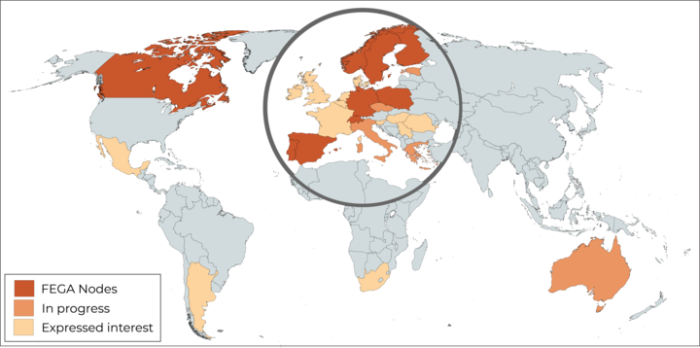
Image credits: Swiss FEGA; Gabriele Rinck; FEGA


